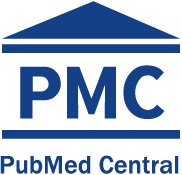Effects in rats of bee-wax alcohols (D-002) on ulcerative colitis induced by dextran sulfate and ethanol
DOI:
https://doi.org/10.17843/rpmesp.2017.342.2369Keywords:
Bees, Ulcerative colitis, RatsAbstract
Objectives. To investigate the effects of D-002, a mixture of 6 high molecular weight primary aliphatic alcohols, obtained from beeswax (Apis mellifera), on severe inflammatory ulcerative colitis (UC) induced by Dextran sulfate (DSS) and ethanol in rats (Ratus ratus). Materials and methods. Rats were randomly distributed in six groups: a zero control to which no damage was caused, and five to which the UC was induced: a negative control (vehicle), three treated with D-002 (25, 100 and 400 mg/kg) and a positive control with sulfasalazine (200 mg/kg) (reference substance). Clinical manifestations (body weight variation, diarrhea and rectal bleeding), macroscopic and histological damage score, and myeloperoxidase (MPO) activity were quantified. Results. The oral treatment with D-002 (25, 100 and 400 mg/kg) significantly prevented the decrease in body weight. The dose of 400 mg/kg reduced the presence of diarrhea and rectal bleeding, although its comparison with the negative control only reached statistical significance on diarrhea. D-002 (25, 100 and 400 mg/kg) significantly reduced the score of macroscopic lesions (40.0; 43.3 and 47.2% inhibition, respectively), the histological damage score (31.5; 53.7 and 67.1% inhibition, respectively) and the activity of MPO (73.2; 83.6 and 85.0% inhibition, respectively), compared to the negative control group. Sulfasalazine significantly reduced all variables studied. Conclusions. D-002 (25, 100 and 400 mg/kg) significantly protected the colonic mucosa in rats with severe inflammatory UC induced by DSS and ethanol.
Downloads
Downloads
Published
Issue
Section
License
Copyright (c) 2017 Revista Peruana de Medicina Experimental y Salud Pública

This work is licensed under a Creative Commons Attribution 4.0 International License.




























